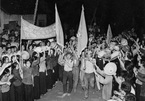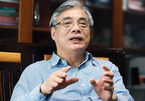A forum on the solutions to develop the contingent of intellectuals in 2021-2030 was organized by the Vietnam Academy of Social Sciences (VASS) on September 25.

According to Nguyen Huy Hoang from the Institute of Southeast Asian Studies (ISEAS), Vietnam still doesn’t have sufficient policies to develop a contingent of intellectuals.
The policies are not attractive enough to attract overseas Vietnamese intellectuals to contribute to solving national problems, and domestic intellectuals to work with scientific and cultural centers in the world.
Hoang also pointed out that there are many problems in financial policies for science and technology, culture and art activities. Scientists therefore have to use some ‘tricks’ to get disbursement for their scientific research projects. This affects the quality of creative work, wastes time, effort and money, and affects the prestige and reputation of intellectuals.
Because of the unreasonable policies, Vietnam is facing a brain drain.
Vo Dai Luoc from the Asia-Pacific Economic Center, commented that the elite contingent remains modest, limited in number, and weak in quality.
Meanwhile, among intellectuals and the elite, the people working in state agencies play the decisive role, because the policies used to regulate the country and facilitate intellectuals’ work are created by them.
Citing the reasons behind the brain drain, Luoc emphasized the unreasonable remuneration for the elite.
Intellectuals move freely all over the world and it is necessary to apply reasonable policies to attract them. Vietnam needs to compete with other countries, not only to attract Vietnamese talents, but also talent from the rest of the world.
In fact, Vietnam reserves a large proportion of budget for training, but it cannot retain intellectuals.
According to Pham Ngoc Linh from the Central Propaganda and Training Commission, Vietnam has been implementing Resolution 27 on building a contingent of intellectuals for 10 years, but many problems still exist.
Ministries and local authorities have been applying many policies to attract intellectuals, but the efficiency of the policies is not high.
One of the biggest problems is the placement of intellectuals with good professional knowledge in the posts of managerial officers. This is a big waste, because talented people are not used for the right work and they cannot advance or promote their abilities.
State agencies and local authorities spend a lot of money to fund training courses for talented people, but they don’t place them in the right posts.
Le Huyen

Intellectuals respond for Southern Liberation
The 1970s was a time of huge significance in Vietnamese history, not least for the generation who responded to the movement 'Putting away pens to go to the battle'.

How can Vietnam attract talented people?
How should Vietnam attract talented people, and accept their differences to develop? On the topic of aspirations for Vietnam to rise up and catch up with modern, civilized countries, VietNamNet spoke with senior economist Tran Dinh Thien.